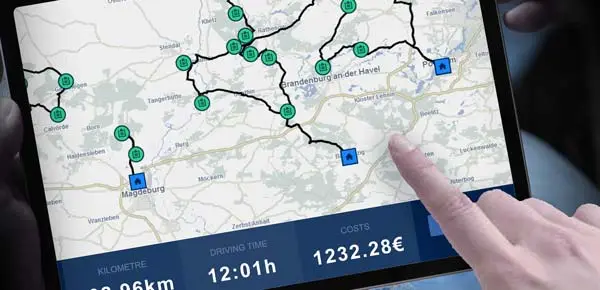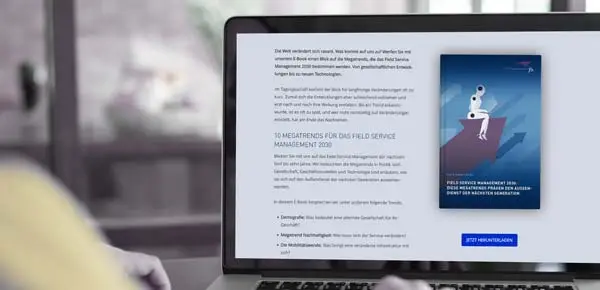
BLOG / CUSTOMERS
HOW IMPORTANT IS THE PREPARATION OF A BUSINESS CASE: THE COSTS VERSUS THE BENEFITS?
06 May 2021 · Ron De Langen
Some organisations do not take a thorough step towards gaining insight into the benefits. This is often because they assume a certain saving in miles/kilometres and travelling time for field staff, and an average saving in planning activities with an algorithm-driven scheduling solution (compared to the current planning system). Furthermore, the conclusion is drawn that there is little difference in savings between the various algorithm-driven planning systems because a planning system is a planning system and an algorithm is an algorithm. And that is exactly what it is not.
There are several points to consider when it comes to benefits such as the power of an 'AI' driven algorithm within a Field Service solution:
• support your organisation in its 'digital' transformation
• prepare your organisation for the fourth industrial revolution
• realise the potential for increased turnover for your organisation
• save on paper and communication
• reduce CO2 emissions
• and to realise the potential savings for your organisation
In this post we zoom in on the potential savings based on the case of CE Services Group; a savings potential of at least €100,000 per year compared to a different algorithm-driven route planning application.
CASE STUDY: CE SERVICES GROUP
CE Repair Services provides repair services (at home or in a workshop) and related services for electrical appliances, such as televisions, monitors, audio equipment, household appliances, computers; and for technical installations such as heat pumps and air conditioning, with 7 branches spread across the Benelux. With the growth of the organisation (now around 80 technicians and many appointments), optimal planning became a greater challenge, accelerating the search for route planning software in 2020."During the selection process of a planning solution, the following question quickly came to our mind: Which planning system (algorithm) achieves the greatest productivity improvement?" "The difference in procurement and implementation costs was / is quickly apparent but not the difference in terms of productivity improvement. In order to 'justify' and test the difference in costs, we carried out comparison tests of field service processes. This made it clear that the costs of FLS VISITOUR were acceptable and fair as the difference in productivity improvement was qualitatively and quantitatively significantly greater than FLS VISITOUR at the time of the test." -- Paul Veth, Commercial Director CE Services Group
Using a template, the guidelines were clear as to the minimum data required to simulate a planning round with its own data in the FLS VISITOUR planning system and in the other planning system. In this test the 'old' way of planning was kept as much as possible in order to measure the differences between both planning systems, but also compared to the 'old' way of planning. The benchmark in this test is the initial planning tool where 555 appointments over 80 technicians are planned. With one algorithm (based on logistics issues) 73 technicians are needed and with the FLS algorithm (based on field service issues) 68 technicians are needed. A saving of 12 resources compared to the initial planning tool (15%) and a saving of 5 technicians (7%) compared to the planning tool with an algorithm from the transport and logistics world.
• The cost for an engineer with car and equipment is on average €50,000 per year for the employer.
• With a difference of 5 engineers, the quantitative difference is €250,000 on an annual basis compared to the other algorithm driven route planning application. This has a major impact on the initially calculated OPEX and on the final decision making.
This was one of the reasons why CE Services Group chose the FLS algorithm and its Field Service Scheduling application FLS VISITOUR.
SAVINGS OUTCOME: FTE CAPACITY
For the sake of convenience, the business case is calculated on the basis of savings in FTEs. You can also convert the freed-up capacity of your Field Service into extra jobs that can be carried out and/or shortening the lead time of planned jobs.FLS can support your organisation in a detailed calculation of the business case into financial ratios such as CAPEX, OPEX, IRR, NPV, PP and ROI. This requires the execution of a Proof of Concept.
To perform a free scheduling test and gain insight into your Field Service business case, very few steps are required. Please contact us at info@fastleansmart.com or call us on +44 1183 800189 for more information on how to perform a scheduling test and/or build a Proof of Concept.





